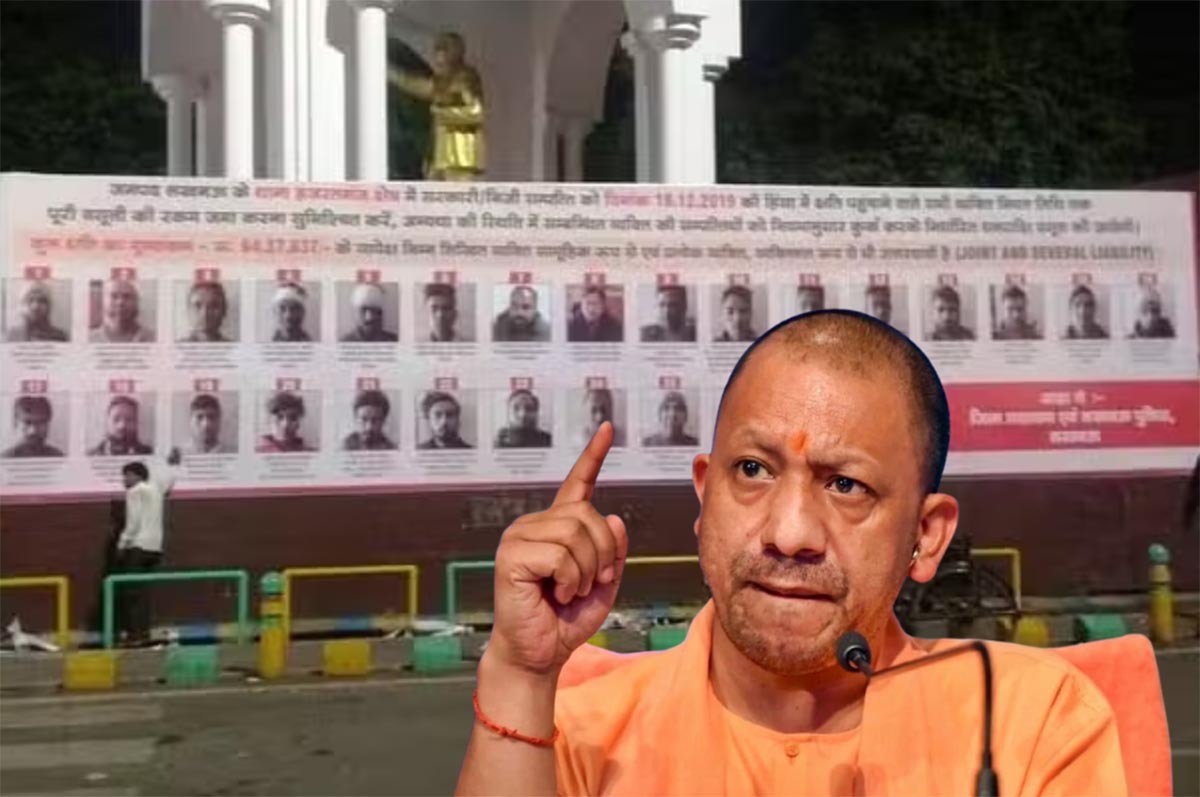The Uttar Pradesh government’s recent decision to display posters of individuals allegedly involved in the November 24 Sambhal violence has sparked concerns about the legality and ethics of public shaming. The violence reportedly erupted over a survey of a local mosque, leading to unrest in the area. As per media reports, Sambhal District Magistrate Rajender Pensiya had revealed that over 400 individuals have been identified, with 32 already arrested. “We are finalising the design of the posters and will exclude those who have been arrested,” he said, adding that the matter would be discussed in a peace committee meeting scheduled for 3 PM.
This strategy, aimed at deterring future incidents, is not without precedent. The Yogi Adityanath administration employed a similar tactic in 2020, putting up banners in Lucknow displaying names and photographs of individuals accused of violence during the anti-Citizenship Amendment Act (CAA) protests. That move, however, was met with severe judicial criticism. (Detailed reports on Sambhal violence can be read here, here and here.)
2020 Allahabad High Court judgment: A scathing rebuttal
In March 2020, the Allahabad High Court took suo moto cognisance of the UP government’s decision to erect banners with personal details of alleged anti-CAA protestors. The court’s observations were unequivocal, labelling the state’s actions as “unwarranted interference in privacy” and “highly unjust.” The division bench, comprising the then Chief Justice Govind Mathur and Justice Ramesh Sinha, ruled that the move violated Article 21 of the Constitution, which guarantees the right to privacy and personal liberty.
Rejecting the Advocate General’s defence that the posters aimed to deter violence, the court had stated: “We do not find any necessity for a democratic society for a legitimate aim to have publication of personal data and identity. The accused persons are the accused from whom some compensation is to be recovered and in no manner they are fugitive.”
The court had further emphasised that the state’s actions failed the tests of legality, legitimate aim, and proportionality. It noted the absence of any statutory authority permitting such public shaming and criticised the selective targeting of individuals: “As a matter of fact, the placement of personal data of selected persons reflects colourable exercise of powers by the Executive.”
Additionally, the court reminded the state that its role is to uphold constitutional values, not infringe upon them by stating “Where there is gross negligence on part of public authorities and government, where the law is disobeyed and the public is put to suffering, and where the precious values of the Constitution are subjected to injuries, a constitutional court can very well take notice of that at its own.”
The bench ordered the immediate removal of the banners and directed the government to file a compliance report. The judgment remains a landmark assertion of individual rights against executive overreach.
The judgment can be read here.
A repeat of the past or a deliberate defiance?
The Sambhal administration’s decision to resurrect the controversial practice of ‘naming and shaming’ reeks of disregard for constitutional values and judicial precedent. The Allahabad High Court’s 2020 ruling left no ambiguity about the illegality and unconstitutionality of such actions. Yet, the state government appears undeterred, prioritising populist optics over the principles of justice and rule of law.
This move raises troubling questions about the UP government’s commitment to upholding citizens’ fundamental rights. By persisting with tactics that have already been judicially condemned, the state signals a disturbing willingness to defy constitutional safeguards for political expediency. Instead of addressing the root causes of communal tensions, the administration risks stoking further divisions by weaponising public shaming as a tool of governance.
The brazen defiance of past judicial directives is not just a legal misstep but an affront to the very fabric of a democratic society. The right to privacy, due process, and equal protection under the law cannot be sacrificed at the altar of authoritarian governance. If left unchecked, this pattern of state overreach threatens to erode the trust of the governed and weaken the constitutional bedrock that holds India together.
Related:
Uttarakhand: Despite BJP Govt Assurance to Contrary in HC, Hindu Mahapanchayat Held in Uttarkashi
Uttarakhand High Court orders security, condemns hate speech over Uttarkashi Mosque

